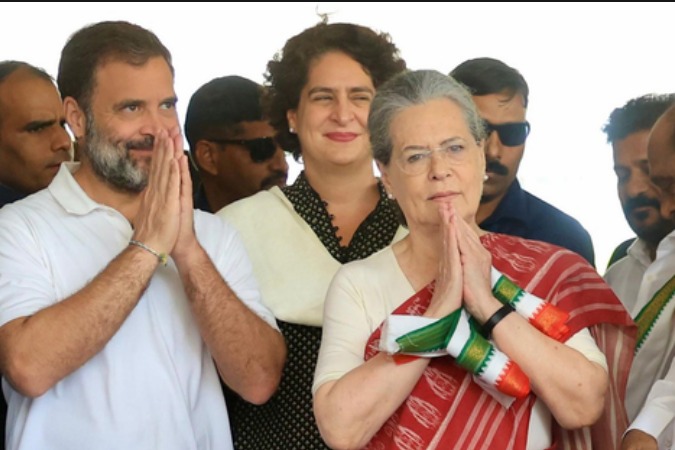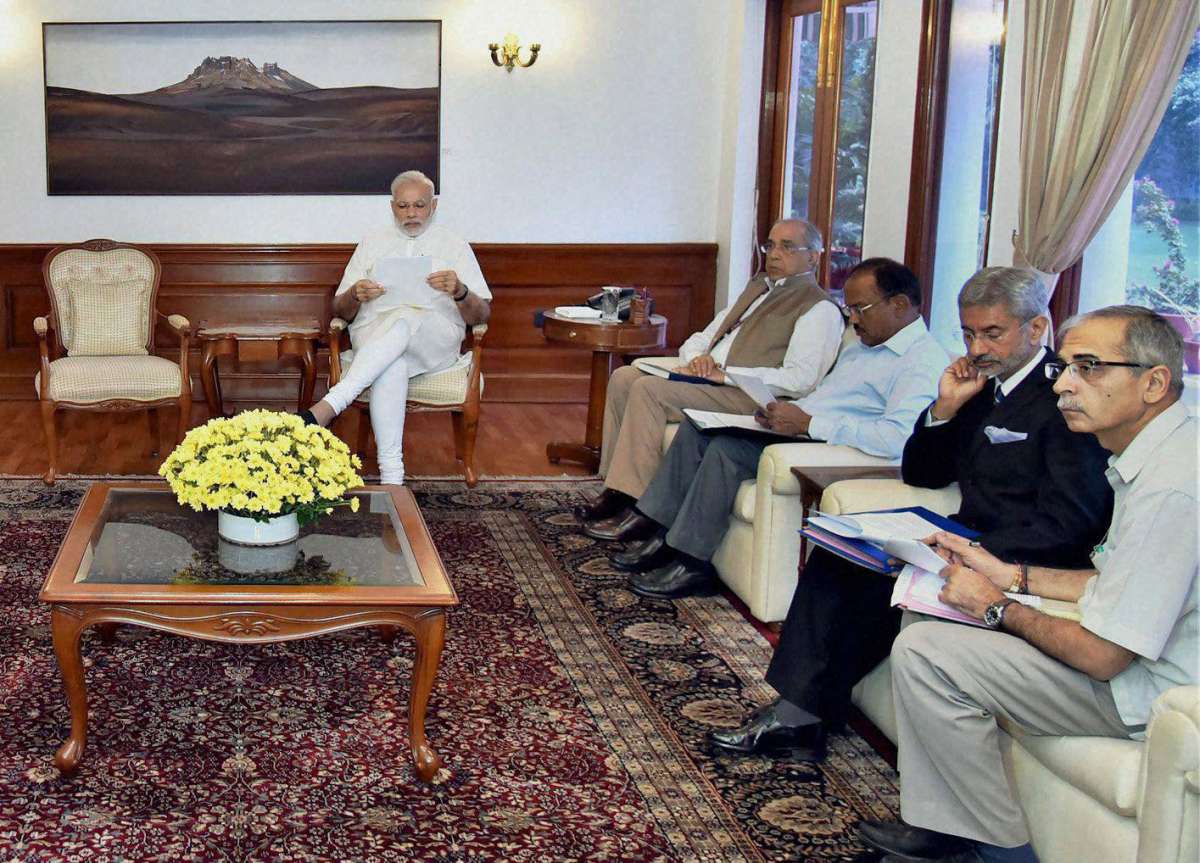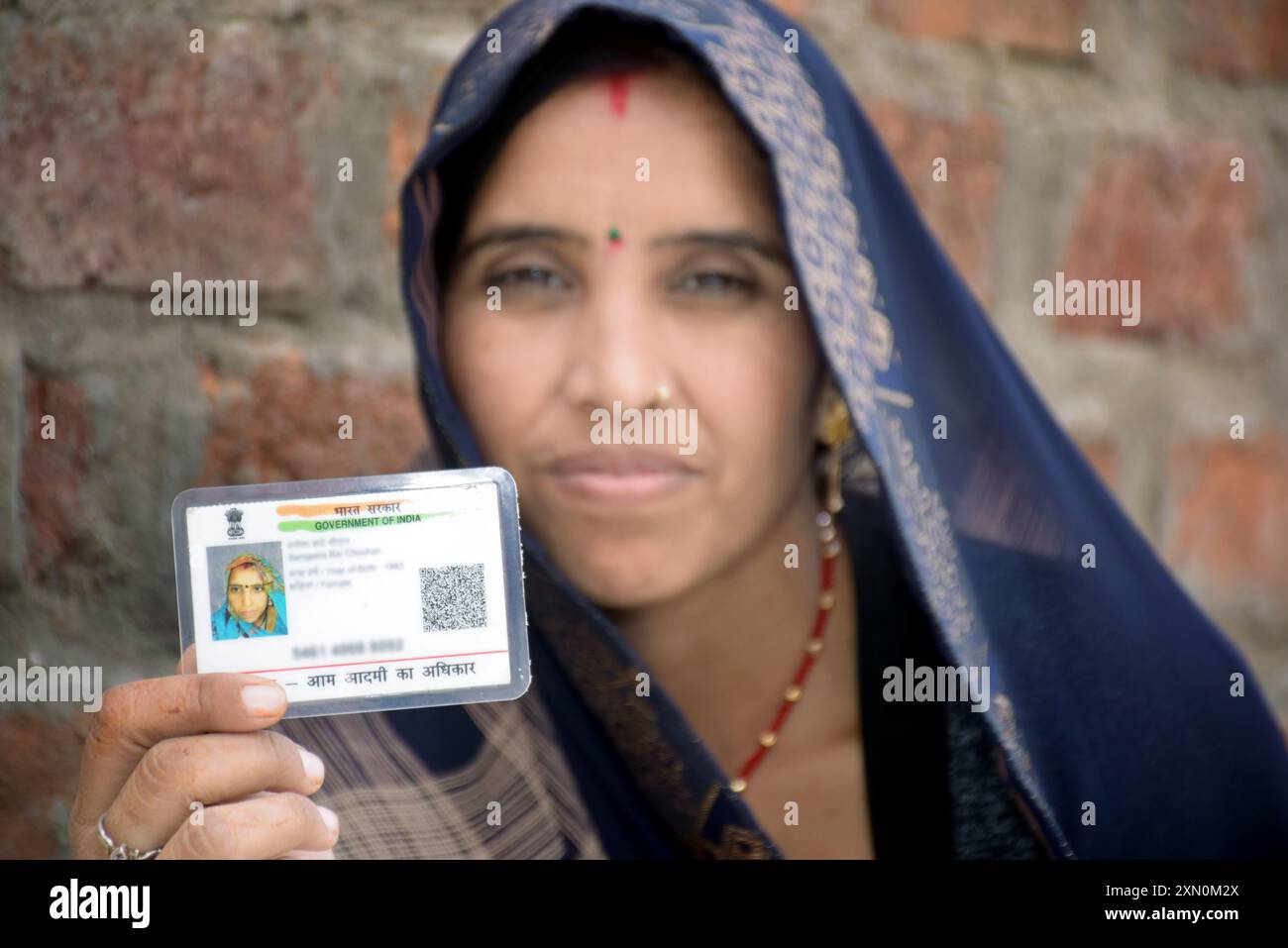


Leader of Opposition Rahul Gandhi has criticized the Modi government for appointing public servants through the Rashtriya Swayamsevak Sangh (RSS) instead of following the traditional Union Public Service Commission (UPSC) route. He has expressed concerns that this approach may undermine the reservation system and limit opportunities for underprivileged individuals. Gandhi has also raised questions about potential corporate influence in these appointments, citing the recent appointment of SEBI chairperson Madhabi Puri Buch as an example. The issue of lateral entry has sparked a debate about the role of the UPSC in selecting top government officials and its impact on social justice.
The Controversy Over Modi Government's Lateral Hiring Practices
Background:
Prime Minister Narendra Modi's government has recently come under fire for its practice of hiring senior civil servants through lateral entry, bypassing the traditional Union Public Service Commission (UPSC) route. This move has raised concerns about political interference, undermining of the reservation system, and corporate influence in government appointments.
Criticisms:
1. Political Interference:
Critics argue that lateral hiring allows the government to appoint individuals loyal to the ruling party, rather than those who have proven their merit through competitive exams. This could lead to politicization of the bureaucracy and compromise its independence.
2. Undermining Reservation System:
The UPSC exam system is designed to ensure fair and equal opportunities for individuals irrespective of caste, religion, or socioeconomic status. Lateral hiring, which is not subject to these reservations, could undermine this principle and limit opportunities for underprivileged candidates.
3. Corporate Influence:
Concerns have also been raised about potential corporate influence in lateral appointments. Critics point to the recent appointment of Madhabi Puri Buch, a former corporate executive, as chairperson of the Securities and Exchange Board of India (SEBI).
Leader of Opposition's Concerns:
Leader of Opposition Rahul Gandhi has strongly criticized the Modi government's lateral hiring practices, expressing concerns about their impact on social justice and transparency. He has questioned the government's motive for bypassing the UPSC route and has demanded greater accountability in these appointments.
Government's Defense:
The government has defended its lateral hiring policy, arguing that it allows them to bring in specialized expertise and experience from the private sector. They contend that these individuals can contribute valuable insights and help improve government efficiency. However, critics maintain that this can be achieved without undermining the UPSC system.
Top 5 FAQs and Answers:
1. What is lateral hiring? Lateral hiring is the practice of hiring senior government officials directly, bypassing the UPSC exam route.
2. Why has it sparked controversy? It has raised concerns about political interference, undermining of the reservation system, and corporate influence.
3. What are the arguments in favor of lateral hiring? The government argues that it allows them to bring in specialized expertise and improve government efficiency.
4. What are the concerns raised by the opposition? The opposition criticizes it as a way to appoint loyalists, undermine the UPSC system, and promote corporate influence.
5. What is the future of lateral hiring in India? The debate over lateral hiring is ongoing, with the government and opposition taking different positions. The outcome will likely shape the future of civil service recruitment in India.

Indian Union Minister Hardeep Singh Puri responds sharply to Pakistani leader Bilawal Bhutto-Zardari's threatening statement on the Indus Waters Treaty, stating that Pakistan will have to pay a heavy price. Puri also mentions the recent throat-slitting gesture made by a Pakistani Colonel during a protest by Indians at the Pakistan High Commission in London, emphasizing the deteriorating state of Pakistan.

Ranjana Sonawane, the first recipient of India's Aadhar card, still lacks access to government schemes 13 years later. Despite being eligible for the Chief Minister Majhi Ladki Behen Yojana, Ranjana has not received any money due to an issue with her Aadhar being linked to someone else's bank account. This case brings to light the flaws in the implementation of government schemes in rural and tribal areas, where women like Ranjana often have their funds misdirected or lack necessary information.

The Indian National Congress (INC) has announced its plans to launch a month-and-a-half-long campaign in Jammu and Kashmir on April 22. The purpose of the campaign is to demand the restoration of statehood and to further the “Save the Constitution” movement. With the recent appointment of Syed Naseer Hussain as the new J&K in-charge, the party hopes to regain its lost support in the Union Territory. This campaign comes at a crucial time, as former supporters of the Congress leader Ghulam Nabi Azad have recently dissolved their party, raising questions about their political future. The Congress hopes to use this opportunity to highlight the BJP's failures in empowering elected governments and its betrayal over statehood.

Thousands of citizens in Pune are rallying together through an online petition to demand the protection of their city's hills and hill slopes from any construction. The petition is addressed to the former Pune Municipal Commissioner and Chairman of the state-appointed Committee on Bio-Diversity Park and Hill Top Hill Slopes. The citizens are concerned that the committee's review may result in allowing construction on the hills, while strict measures have already been mandated by the government to prevent it. The citizens stress the importance of preserving these natural areas for the city's ecological balance and urge the government to uphold its promise to future generations.

After the devastating terror attack in Pahalgam, Jammu and Kashmir, India has suspended the 1960 Indus Waters Treaty with Pakistan. This decision was made during a key meeting chaired by Union Home Minister Amit Shah, with discussions on potential actions being taken against Pakistan. As tensions between the two countries continue to escalate, Indian leaders have condemned Pakistan for their involvement in the attack and have vowed to take strong measures in response.

The Indian Army made its first major move since the Pahalgam terror attack on April 22, as they killed top Lashkar-e-Taiba (LeT) commander Altaf Lalli in an encounter in Jammu and Kashmir's Bandipora district. The security forces are on the hunt for the terrorists responsible for the brutal killing of 26 civilians and have launched a massive anti-terror operation. In other developments, Indian Army Chief General Upendra Dwivedi visited Srinagar for a security review meeting and the authorities demolished the houses of two suspected terrorists involved in the Pahalgam attack.

In a hearing at the Supreme Court, the bench rebuked Congress leader Rahul Gandhi for his "irresponsible" comments about freedom fighter Vinayak Damodar Savarkar. The judges highlighted the need to show respect for India's freedom fighters and questioned whether Gandhi was aware of his grandmother and Mahatma Gandhi praising Savarkar. The court also stayed an Allahabad High Court order that refused to dismiss a lower court's summons against Gandhi over his alleged remarks about Savarkar.

The Supreme Court has stepped in to warn Congress MP Rahul Gandhi over his comments about India's independence activist Veer Savarkar, staying a trial court's summons to the politician. The top court emphasized that Savarkar is a highly respected figure in Maharashtra and stated that no one would be allowed to make derogatory remarks about freedom fighters. The court also pointed out that Gandhi's family has had a history of praising Savarkar and Gandhi himself has been warned that the court will take suo motu cognizance of any such remarks. Additionally, the article also mentions an attack in Jammu and Kashmir that has led to heightened tensions between India and Pakistan.

In a successful operation by the security forces, a Lashkar-e-Taliba (LeT) terrorist associate, identified as Altaf Lalli, was killed in an ongoing encounter in the Bandipora district of Jammu and Kashmir. The encounter began after the security forces received intelligence about the presence of terrorists in the area. Two security personnel have also been injured in the exchange of fire and are currently undergoing treatment at a nearby hospital. The clash highlights the continued efforts of the security forces to combat terrorism in the region.

The Telangana-Chhattisgarh border is a hotbed of tension as security forces step up their efforts to root out Maoist activity from the region. Top Maoist leader Hidma is the target of current high-security operations, with forces strategically advancing through previously inaccessible areas. With mounting pressure, sources indicate that the hold of the Maoists in the region is gradually weakening, making for a tense and critical situation.